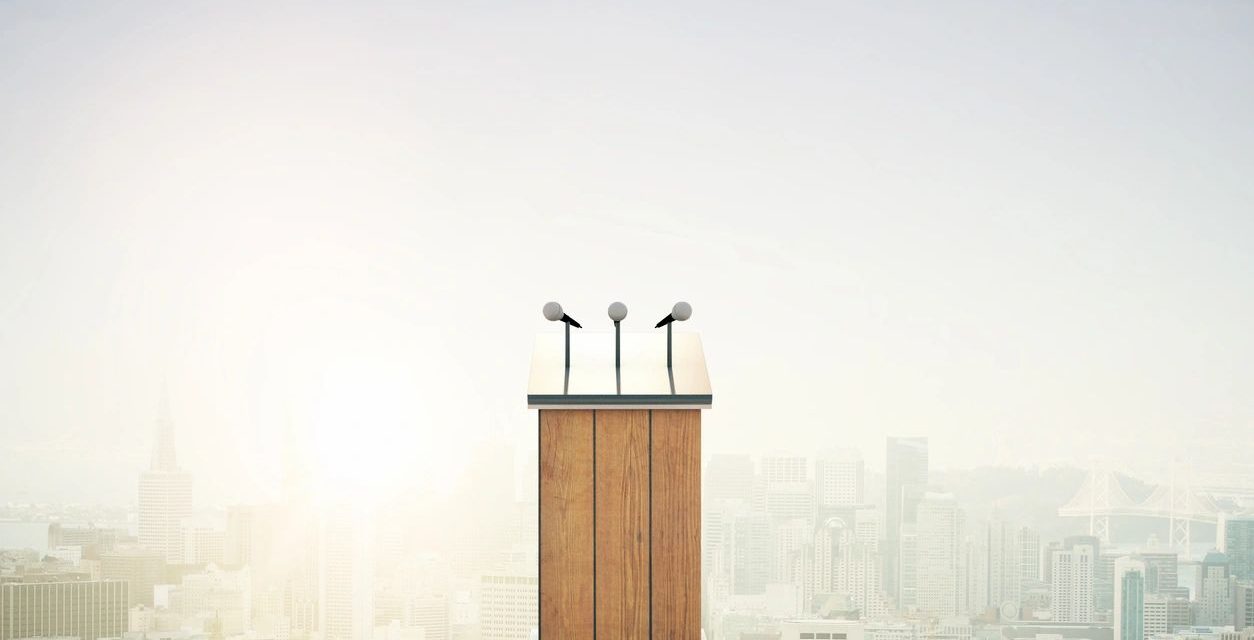In this blog post, we’re taking a look at the ethics of writing about governance during a public health emergency.
Governance is the action or manner of governing. Writing about governance is fun, risky, and largely ignored by those who govern. We write about “them” because they do funny things, and because when they ignore “us,” their ratings fall. Nothing bothers governance more than low media ratings. As for the public, calling out ethical lapses by elected or appointed leaders gives them a chance to fume about it, by writing about it.
As always, the focus here is on the ethics of the thing, not doing it. The ethical parameters embedded in testing what public leaders say in public health emergencies are clarity, transparency, believability and legitimacy, not necessarily in that order.
Here are a couple of questionable quotes about the Spring 2020 COVID-19 public health emergency.
Example Number 1. “President Trump said on Friday that the Centers for Disease Control and Prevention was urging all Americans to wear a mask when they leave their homes, but he immediately undercut the message by repeatedly calling the recommendation voluntary and promising that he would not wear one himself. . . With the masks, it is going to be really a voluntary thing, the president said at the beginning of the daily coronavirus briefing at the White House. You can do it. You don’t have to do it. I am choosing not to do it. But some people may want to do it, and that’s OK. It may be good. Probably will — they’re making a recommendation. It’s only a recommendation, it’s voluntary.”[1] On a 1 to 5 ethical scale, from clearly unethical to ethical, I’d give this a 2. If the CDC says do it and the President says it’s OK not to do it, it passes the clarity test but fails the legitimacy test.
Example Number 2. “The governor of Georgia said he only recently discovered that coronavirus patients could transmit the virus before they showed any symptoms, as he announced plans for a belated shelter-in-place order across the state . . . [he] earlier urged Georgia residents to stay in their homes to prevent the spread of the virus, but resisted tougher measures seen in other states until Wednesday, when he made the discovery that had been in the public domain for some months.”[2] I’d rate this governor as a 3, giving him the benefit of doubt on what he “knew,” even though what he said lacks believability.
What about federal governance that allows state and local authorities to decide which businesses are essential during the COVID-19 public health emergency? In most states, grocery stores, hospitals, health clinics, nursing homes, hardware stores, supply stores, law enforcement and emergency agencies are essential. But what about the people who work in those essential operations? Is it ethical to order them to go to work? Are they acting ethically if they refuse to go to work?
OSHA has a statutory General Duty Clause, requiring both government and private employers to ensure that workers are “free from recognized hazards that are causing or likely to cause death or serious harm to employees.”[3] Surely COVID-19 counts as something that is likely to cause serious injury or death. But that’s law.
My inquiry is ethics. Employers are ethically obligated to take care of their employees. Employees are ethically obligated to follow lawful directions on when, where, and how to work. It is well within ethical boundaries for employers to insist on workers doing their job if it is safe to do so. It is also well within ethical boundaries for employees to resist working in places they feel are unsafe. Employment law will sort out the consequences of one choice or the other. Employment ethics are neither codified nor embedded in case law.
 I am an author and a part-time lawyer with a focus on ethics and professional discipline. I teach creative writing and ethics to law students at Arizona State University. Read my bio.
I am an author and a part-time lawyer with a focus on ethics and professional discipline. I teach creative writing and ethics to law students at Arizona State University. Read my bio.
If you have an important story you want told, you can commission me to write it for you. Learn how.
[1] https://www.nytimes.com/2020/04/03/us/politics/coronavirus-white-house-face-masks.html
[2] https://www.independent.co.uk/news/world/americas/coronavirus-georgia-brian-kemp-symptoms-cdc-cases-death-toll-a9443181.html






 I am an author and a part-time lawyer with a focus on ethics and professional discipline. I teach creative writing and ethics to law students at Arizona State University.
I am an author and a part-time lawyer with a focus on ethics and professional discipline. I teach creative writing and ethics to law students at Arizona State University.  My latest novel is Hide & Be.
My latest novel is Hide & Be.  If you have an important story you want told, you can commission me to write it for you.
If you have an important story you want told, you can commission me to write it for you.